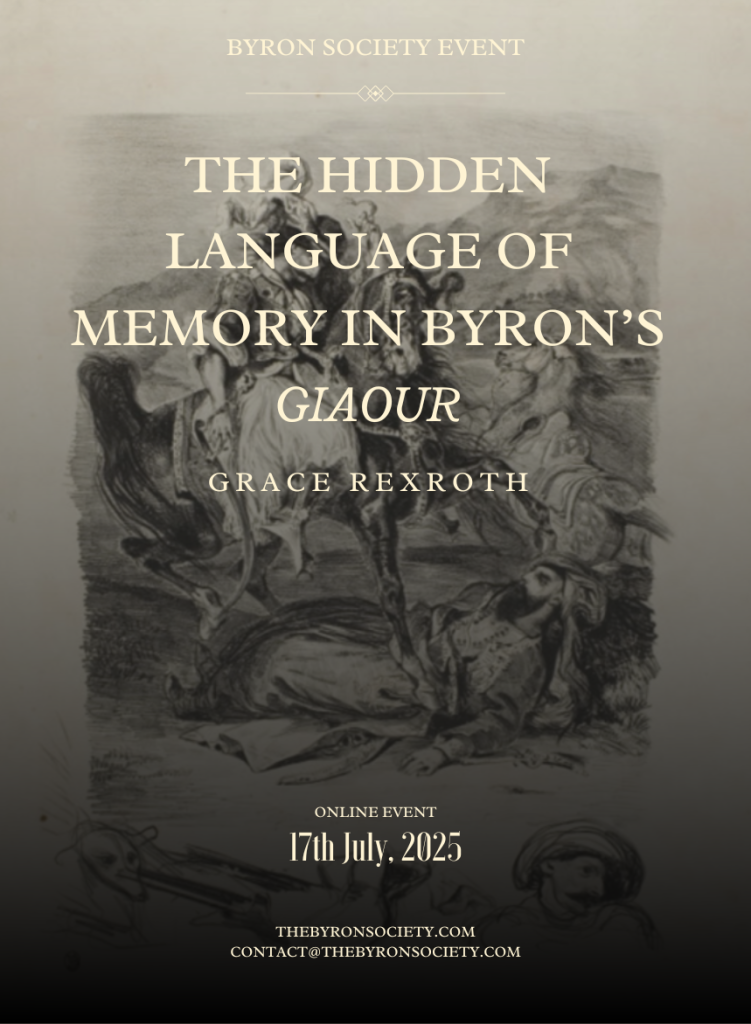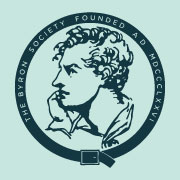
In 1813, Byron dedicated The Giaour, a Fragment of a Turkish Tale to the poet Samuel Rogers. This gesture has garnered little critical interest, in part because Rogers and his poetry have faded into the background of Romanticism. When they do attend to this gesture, scholars tend to consider Rogers’ The Voyage of Columbus (1810) to contextualize The Giaour’s orientalism or its formal fragmentation. However, Bryon cited a very different poem by Rogers—The Pleasures of Memory—more than once in his own work and letters. Essentially unknown now, The Pleasures of Memory was one of the best-selling poems of its day. Between 1792 and 1816 it went through 20 editions and sold over 23,000 copies, with steadily increasing print runs each year. It also inspired myriad conversational response poems, including Robert Merry’s The Pains of Memory, which gave voice to competing ideas about the nature of both personal and cultural memory within the era’s complex political context. In this talk, I explore how Rogers’ Pleasures of Memory, along with the poetic responses it inspired, provides a new opening into The Giaour by allowing us to better contextualize Byron’s complicated, vacillating consideration of the problems of memory in his developing poetic oeuvre.

